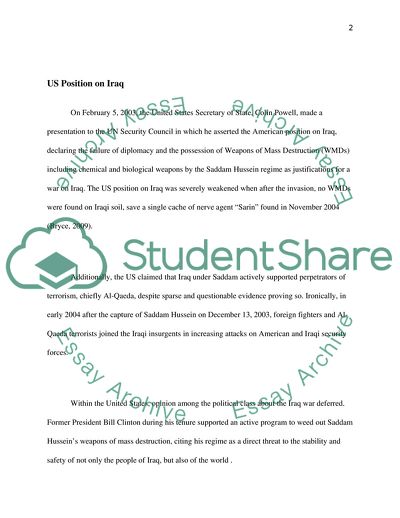Cite this document
(The Position of USA in the Second Iraq War: The Axis of Peace Coursework, n.d.)
The Position of USA in the Second Iraq War: The Axis of Peace Coursework. https://studentshare.org/politics/1720607-the-position-of-the-usa-in-the-second-iraq-war-2003-the-axis-of-peace
The Position of USA in the Second Iraq War: The Axis of Peace Coursework. https://studentshare.org/politics/1720607-the-position-of-the-usa-in-the-second-iraq-war-2003-the-axis-of-peace
(The Position of USA in the Second Iraq War: The Axis of Peace Coursework)
The Position of USA in the Second Iraq War: The Axis of Peace Coursework. https://studentshare.org/politics/1720607-the-position-of-the-usa-in-the-second-iraq-war-2003-the-axis-of-peace.
The Position of USA in the Second Iraq War: The Axis of Peace Coursework. https://studentshare.org/politics/1720607-the-position-of-the-usa-in-the-second-iraq-war-2003-the-axis-of-peace.
“The Position of USA in the Second Iraq War: The Axis of Peace Coursework”. https://studentshare.org/politics/1720607-the-position-of-the-usa-in-the-second-iraq-war-2003-the-axis-of-peace.


